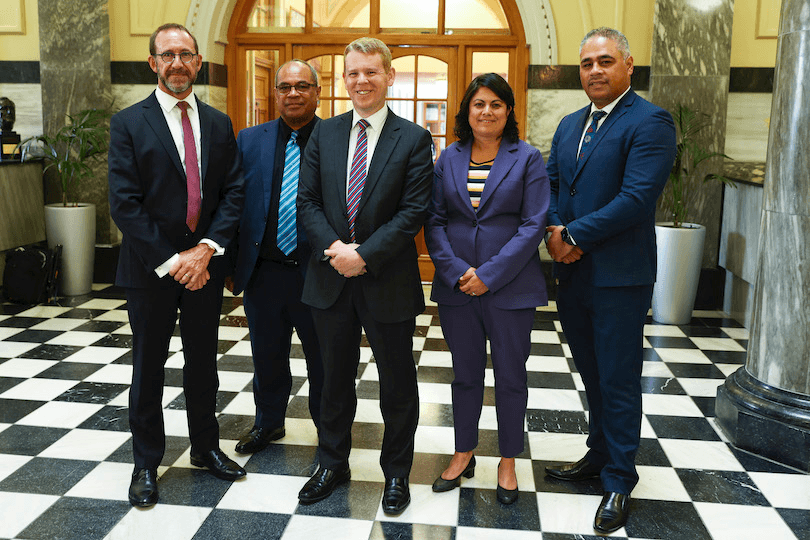District health boards will be abolished, and a new Māori Health Authority will be established, in a set of sweeping health system reforms announced by the government today. Alex Braae explains what it’s all about.
What’s all this then?
A massive new level of centralisation is coming to the health system, after the announcement district health boards are to be scrapped. In their place will be a brand new entity called Health New Zealand. There will also be a Māori Health Authority, which will have the power to commission health services, monitor the state of Māori health and develop policy.
Hang on – DHBs are going entirely? Just, gone?
Correct. The Simpson Review – on which today’s reforms are loosely based – recommended cutting down the number of DHBs. The review also recommended an end to DHB elections and moving to all-appointed boards, which is now less of an issue given there will be nothing to be elected to.
This is an outrage! Is this an outrage?
Some will argue it is, but the DHB system had immense problems. It was blamed for unequal outcomes for patients depending on where they lived, and DHBs often weren’t great at working with each other. Elected members often got in on incredibly low numbers of votes, calling into question the democratic legitimacy of the whole process. And most DHBs are currently in eye-watering levels of debt – across the country the collective deficit was close to a billion dollars, as of last year. Clearly, rather than trying to resolve these issues within the existing system, the government has decided it isn’t worth the bother. There will still be a network of four regional divisions, sitting underneath the otherwise centralised structure.
What did minister Andrew Little have to say about it?
He described the reforms as “a plan to create a truly national public health service, that takes services to where people need them, no matter who they are or where they live”.
Little outlined some of the inequities currently seen in the health system, including young Māori being more likely to die after traumatic injuries compared to others with the same injuries, Māori and Pasifika people being twice as likely to die young from treatable conditions, people with severe mental health issues dying decades earlier on average, and a lack of information collection on the health needs of people with disabilities.
“These facts are in part the consequence of a system that is disjointed, and simply does not see the needs of large parts of the community,” said Little. “Our system is far too complicated for a small nation. We simply do not need 20 sets of decision makers. Nor do we need 20 plans for capital investment, for IT systems, and for our workforce.”
Little also talked up the potential for the new system to better deliver digital services, and “shifting the focus away from hospitals”.
“Consumers have repeatedly asked for the ability to use modern technology, such as virtual diagnostic tests at home, the ability to book doctor appointments online, and digital monitoring of health conditions. To put it plainly, successive governments have simply failed to deliver in this area,” said Little, saying a national health service would be able to.
How has the opposition responded?
National’s health spokesperson Dr Shane Reti has come out strongly against the reforms, calling them “reckless”.
“Our regions know what works for them when it comes to keeping their communities healthy, and that isn’t always having Wellington dictate terms,” he said. “Removing DHBs is similar to when Regional Health Authorities were centralised, it didn’t work then and it won’t work now.”
And what about the health ministry itself? Will it continue to exist?
Yes, but it will become a policy ministry only, which is a pretty massive downgrade. It will become something more like the transport ministry, which sets the direction – but then a lot of the actual service delivery gets done by Waka Kotahi, also known as the NZ Transport Agency.
Tell me more about this Māori Health Authority.
Associate health minister Peeni Henare said Māori had suffered too much under the current system, and a new agency would help change that. “We will legislate for a new independent voice – the Māori Health Authority – to drive hauora Māori and lead the system to make real change,” he said.
“It will have joint decision-making rights to agree national strategies, policies and plans that affect Māori at all levels of the system and it will work in partnership with Health New Zealand to ensure that service plans and the commissioning of health services drives improvement.”
National has come out particularly strongly against this change, which was telegraphed well in advance. Speaking on the AM Show this morning, party leader Judith Collins said “people need help through the public health system irrespective of their ethnicity, and they should get it”.
Te Pāti Māori responded incredibly warmly to the establishment of the Māori Health Authority. Co-leader Debbie Ngarewa-Packer said the party campaigned on just such an agency. “Our job over the next two and half years will be to keep the government accountable to their commitments, particularly as they relate to the legislative powers of the Māori Health Authority and their commitment to reinforcing the principles of Te Tiriti o Waitangi,” she said.
And what else?
Public health was the other part of the reforms announced, and a public health agency will be established within the health ministry. It will lead strategy and monitoring of public health. If you’re confused about what public health is, it’s basically how you describe population-wide health, so it would likely be focused on preventative measures, like bringing down smoking rates.
When will all of this be coming in?
Interim agencies will likely be set up this year, but all in all the government really wants to get these reforms through next year, and at the latest by the time the next election rolls around.





